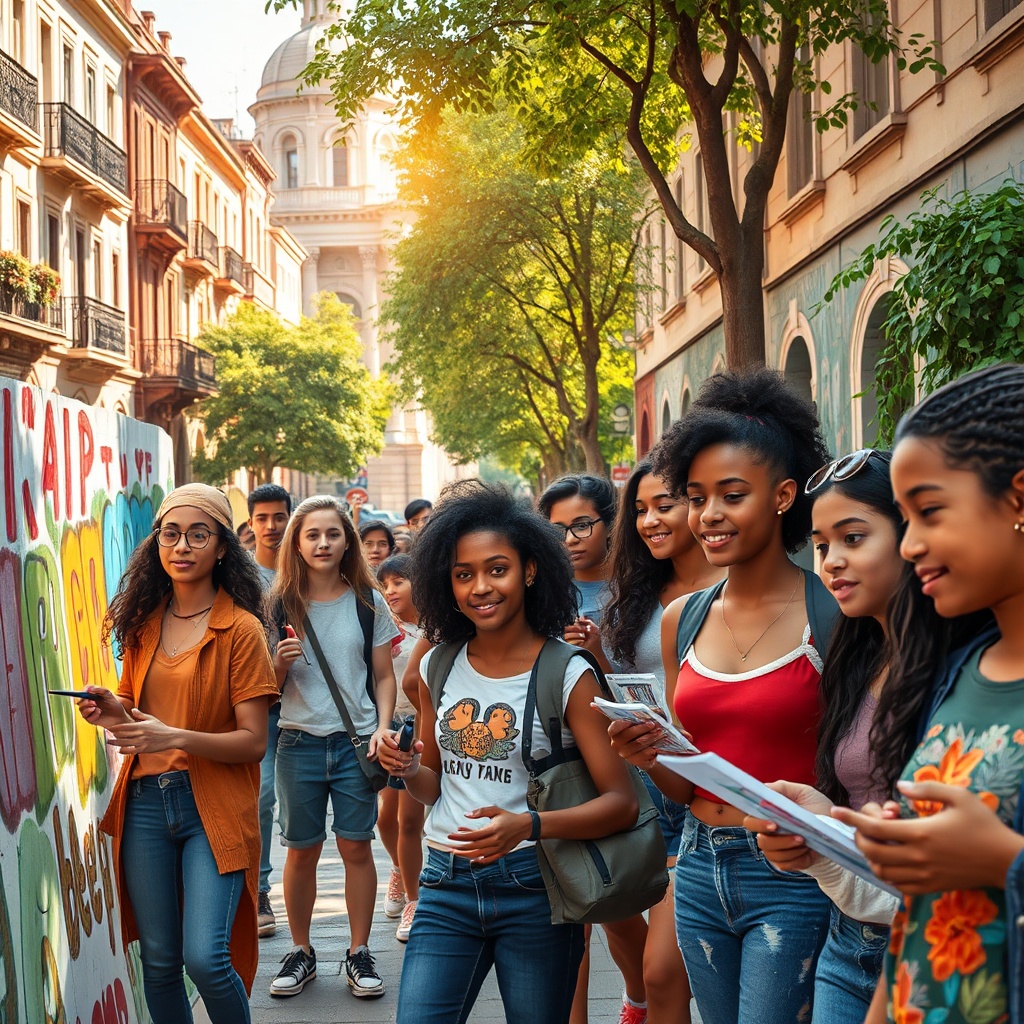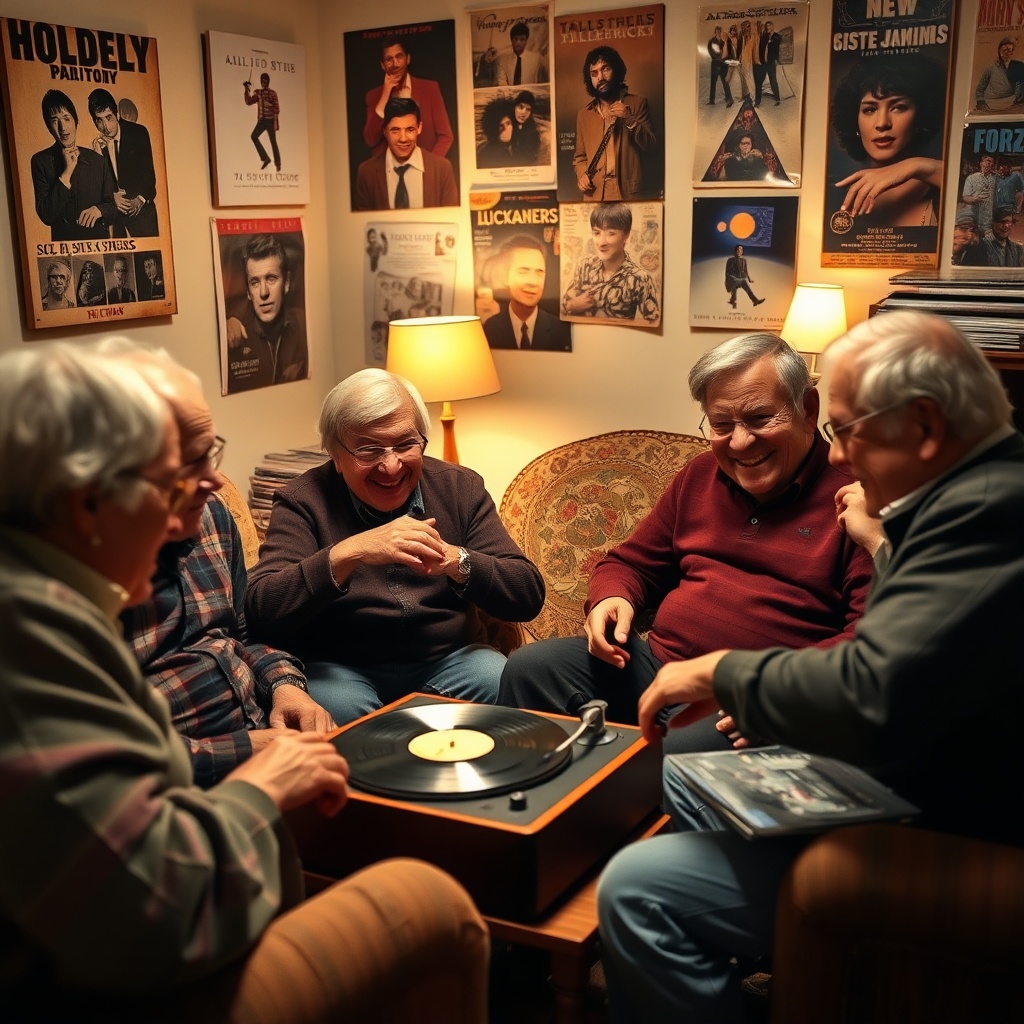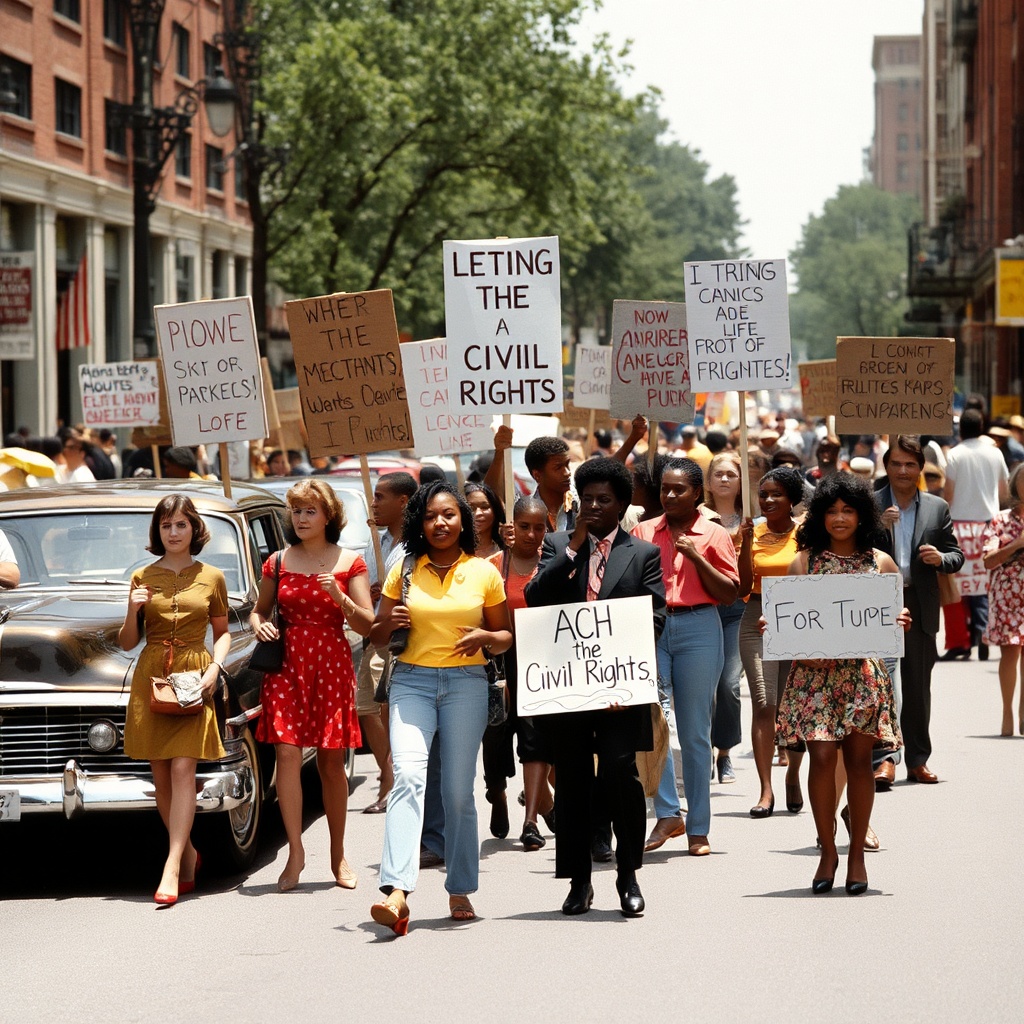Echoes of Change: The Voices that Shaped a Decade

The 1960s were a pivotal decade that brought forth a wave of social change across the globe. The voices of activists, artists, and everyday people created a symphony of dissent and hope, echoing through the streets and into the hearts of millions. Let’s take an interactive journey through this transformative period.
Key Voices and Movements
To understand the change that defined the 1960s, we must listen to the prominent voices that led the charge. Here are some key figures and movements:
- Martin Luther King Jr. – A beacon of the Civil Rights Movement, King’s speeches urged people to dream of a better, more equal society.
- Malcolm X – His call for Black empowerment and self-defense created a new discourse around race and identity.
- Betty Friedan – The author of The Feminine Mystique ignited the second-wave feminist movement, advocating for women’s rights.
- Woodstock Festival – A gathering that symbolized the counterculture movement and the peace movement, promoting harmony through music.
- Anti-Vietnam War Protesters – Voices from campuses across America rallied against a controversial war, demanding peace and justice.
The Impact of Music
Music played a crucial role in social change during the 1960s. Artists used their platforms to address political and social issues. Here are some notable examples:
| Artist | Song | Message |
|---|---|---|
| Bob Dylan | “The Times They Are a-Changin’” | Encouragement for social change and generational shifts. |
| Joan Baez | “We Shall Overcome” | An anthem for the Civil Rights Movement. |
| Jimi Hendrix | “The Star-Spangled Banner” | A protest against the Vietnam War through a powerful rendition. |
Personal Stories of Change
Every voice matters, and personal stories from everyday individuals contributed to the larger narrative of the 1960s. Share your memories of this time:
- What moments stood out to you? Reflect on your experiences.
- Which voices inspired you? Consider how these leaders influenced your beliefs.
The 1960s were a tapestry woven with the threads of hope, activism, and change. The echoes of these voices continue to resonate today, reminding us of the power of collective action and the importance of speaking out for justice. What will your voice say in the ongoing journey for social change?
Courage in the Streets: The Youth Who Dared to Dream

The Awakening of a Generation
During the tumultuous 1960s, a wave of social change swept across the globe, igniting the passion and spirit of the youth. This was a time when young voices rose above the noise, demanding justice, equality, and a brighter future. Have you ever wondered what it felt like to be part of that movement?
Voices of Change
Imagine standing in the midst of a crowd, where the air buzzes with hope and determination. Young activists, inspired by the teachings of leaders like Martin Luther King Jr. and Malcolm X, gathered to advocate for civil rights, peace, and environmental awareness. They believed that their dreams could reshape society. What dreams did you hold when you were young?
Defying Norms
These young revolutionaries were not afraid to challenge the status quo. They marched in the streets, often facing hostility, yet their spirits remained unbroken. Their courage was palpable. Can you recall a moment in your life when you stood up for what you believed in?
The Power of Music
Music became the soundtrack of their struggle. Songs like “The Times They Are A-Changin’” by Bob Dylan and “For What It’s Worth” by Buffalo Springfield echoed the sentiments of a generation. How did music influence your own experiences during these years?
Lasting Impact
The youth of the 1960s left an indelible mark on history. Their commitment to social justice paved the way for future generations to continue the fight. They taught us that dreaming big and taking action can lead to profound change. What lessons do you think today’s youth can learn from that era?
Reflecting on Courage
As we reflect on the struggles and triumphs of the 1960s, let us celebrate the courage of those young dreamers. Their legacy inspires us to keep dreaming and daring to make a difference. What dreams do you still hold close to your heart?
Songs of Freedom: The Soundtrack of a Generation

The 1960s were marked by profound social upheaval and transformation. Music became the heartbeat of this era, echoing the sentiments of a generation yearning for change. Join us as we explore the songs that not only entertained but inspired a movement.
The Power of Music in Social Change
Music has always been a powerful medium for expressing feelings and ideas. In the 1960s, it evolved into a tool for activism and a voice for the marginalized. Artists used their platforms to speak out against injustice, inequality, and war. Let’s take a closer look at some iconic songs that defined this period.
Key Songs of the Era
| Song Title | Artist | Year | Theme |
|---|---|---|---|
| Blowin’ in the Wind | Bob Dylan | 1963 | Peace and Freedom |
| A Change is Gonna Come | Sam Cooke | 1964 | Civil Rights |
| For What It’s Worth | Buffalo Springfield | 1966 | Protest Against Authority |
| Give Peace a Chance | John Lennon | 1969 | Anti-War Movement |
Impact on Society
These songs resonated deeply with individuals and communities. They not only voiced the frustrations of the times but also united people in a shared struggle for justice. Many songs became anthems, sung at rallies, protests, and gatherings, reinforcing the collective spirit of activism.
Interactive Reflection
Now, let’s reflect on how these songs made you feel. Think back to the first time you heard one of these tracks. Did it inspire you? Did it evoke memories of a rally or a significant moment in your life? Feel free to share your thoughts.
The songs of the 1960s are more than just music; they are historical artifacts that encapsulate the hopes and dreams of a generation. They remind us that art can be a catalyst for change and a powerful voice for those seeking freedom and equality. Let us carry forward this legacy and continue to advocate for a better world.
From Protest to Progress: Unpacking the Movement’s Legacy
The 1960s were a decade of profound change, marked by passionate protests that paved the way for significant social progress. This journey through the era invites you to explore how the voices of a generation transformed society.
Key Movements of the 1960s
- Civil Rights Movement: Advocated for equal rights and an end to racial segregation.
- Women’s Liberation: Focused on gender equality and reproductive rights.
- Anti-Vietnam War Protests: Challenged U.S. military involvement abroad and called for peace.
- Environmental Movement: Raised awareness about ecological issues and the importance of conservation.
Throughout the decade, various leaders emerged, each contributing uniquely to the movements:
| Leader | Movement | Contribution |
|---|---|---|
| Martin Luther King Jr. | Civil Rights | Nonviolent protests and the “I Have a Dream” speech. |
| Betty Friedan | Women’s Liberation | Authored ‘The Feminine Mystique,’ sparking dialogue on women’s roles. |
| Abbie Hoffman | Anti-Vietnam War | Co-founder of the Youth International Party (Yippies), promoting counterculture activism. |
| Rachel Carson | Environmental Movement | Published ‘Silent Spring,’ highlighting the dangers of pesticides. |
The Impact of Protests
Protests were not merely acts of defiance; they were powerful catalysts for change:
- Legislative Changes: Many protests resulted in landmark legislation, including the Civil Rights Act of 1964 and the Environmental Protection Act of 1970.
- A Shift in Public Opinion: The visibility of protests led to a greater awareness and support for social justice issues.
- Empowerment of Marginalized Groups: Movements empowered individuals to voice their concerns and demand equality.
Lessons Learned
As we reflect on the legacy of the 1960s, several key lessons emerge:
- Unity in Diversity: Different movements, though diverse in focus, often shared common goals and supported one another.
- The Power of Nonviolence: Peaceful protests can create lasting change and inspire future generations.
- Engagement is Essential: The involvement of individuals from all walks of life is crucial for a successful movement.
The protests of the 1960s, while rooted in their time, continue to resonate today. They remind us that progress is possible and that each voice matters in the quest for justice and equality.
Unity in Diversity: Celebrating the Collective Spirit of the 1960s
The 1960s was a decade of profound transformation, marked by a spirit of unity that transcended boundaries. This era brought together individuals from diverse backgrounds, all united by a common goal: social change. Let’s explore how this collective spirit reshaped society.
Civil Rights Movement
The Civil Rights Movement was a cornerstone of the 1960s, with activists from various ethnicities and social classes joining forces to fight for equality. Key figures like Martin Luther King Jr., Rosa Parks, and Malcolm X galvanized support and inspired countless others to participate in peaceful protests and marches.
- March on Washington (1963) – A historic gathering where Dr. King delivered his famous “I Have a Dream” speech.
- Voting Rights Act (1965) – Legislation that aimed to eliminate barriers preventing African Americans from voting.
Women’s Liberation Movement
Women took to the streets in the 1960s to demand equal rights and opportunities. The Women’s Liberation Movement sought to challenge traditional gender roles and advocate for women’s rights, including reproductive rights and workplace equality.
- Betty Friedan – Her book, The Feminine Mystique, sparked discussions on women’s dissatisfaction with societal norms.
- Equal Pay Act (1963) – Legislation aimed at abolishing wage disparity based on gender.
Counterculture Movement
The counterculture movement symbolized the desire for change among the youth. This era celebrated freedom of expression, creativity, and a rejection of conventional societal norms.
- Woodstock (1969) – A music festival that epitomized the spirit of peace, love, and unity.
- Hippie Movement – Advocated for peace, love, and communal living, embracing diversity in lifestyle and thought.
Global Solidarity
The 1960s was not just a U.S. phenomenon. Across the globe, people united to fight against colonialism, imperialism, and war. The voices of the oppressed echoed, reminding the world of the importance of solidarity.
- Anti-Vietnam War Protests – Activists rallied against U.S. involvement in Vietnam, drawing in diverse groups, including students, veterans, and pacifists.
- Decolonization Movements – Countries in Africa and Asia fought for independence, inspiring global unity against oppression.
The collective spirit of the 1960s reminds us that when people come together in unity, they can effect meaningful change. The diversity of voices—each contributing unique perspectives—was essential in shaping the social landscape of the time.
As we reflect on this era, let us honor the legacy of those who fought for justice and equality, and remember that unity in diversity remains a powerful force for progress.
